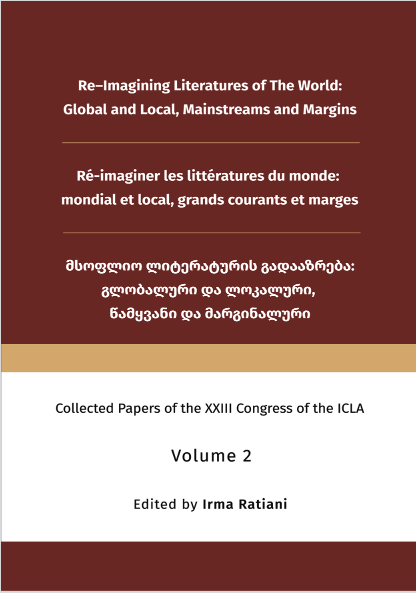Translating the Dalit Experience: Agency, Editorial Mediation, and Epistemic Violence in Kallen Pokkudan's Autobiographical Narratives
Contenu principal de l'article
Résumé
Translation is not merely a simple neutral linguistic act; rather it is conceived as a cultural act with its own equations of power and dominance, centre and margin. Writing happens in a specific linguistic, cultural and political context and the process of translating texts from one cultural system into another is not at all a neutral, innocent, transparent activity. It is rather a political activity. The very act of translation and the politics behind it deserves more attention.
Spivak in “The Politics of Translation” speaks about how Englishing the third world eliminates the identity of the politically less powerful individuals and cultures. She also refers to how translation becomes a means of creating and articulating cultural, ethnographic or sexual Otherness. In her eminent work “Can the Subaltern Speak”, she asks, How can we touch the consciousness of the people even as we investigate their politics? With what voice consciousness can the subaltern speak? (Spivak, 1988, p. 285).
According to her any attempt from the outside to ameliorate the subaltern condition by granting them collective speech invariably will encounter more serious problems: a logocentric assumption of cultural solidarity among a heterogeneous people, and a dependence on (western) intellectuals to "speak for" the subaltern condition rather than allowing them to speak for themselves (spivak,1988, p. 308).
The translation of subaltern narratives from regional languages to English and other languages is an area of considerable academic interest. While the international audience achieved through translation provides broader exposure for subaltern narratives, the process of translation presents numerous challenges related to language, culture, and politics. The representation of the complex social structures of caste, gender, culture, and dialects within the context of local subaltern discourses in English is a subject of growing scholarly inquiry. The translation of subaltern narratives into English is often motivated by the commodification of subaltern subjectivity, experience, and culture to cater to literary and academic interests. Consequently, the transformation of translation as a literary event into a market-driven event dominated by the politics of publication and market is evident in the translation of these narratives. These political interventions happen at different points, possibly even before the conceptualization of the text itself. One of the major interventions is that of agents of translation, including transcribers, editors and publishers. This paper aims to explore the epistemic violence that rise as a result of these interventions in translating dalit experiences into written form, by examining dictated dalit life narratives published in Malayalam.
